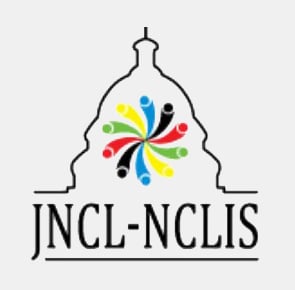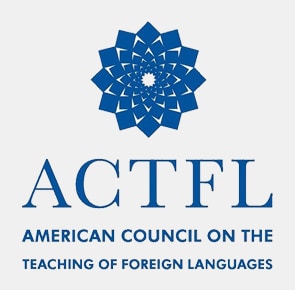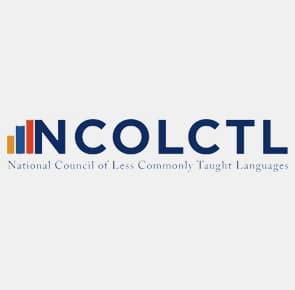What Does a Career in Foreign Language Education Entail?
Are you considering a career as a language educator? If you enjoy learning about foreign languages and cultures, you may be well-suited for a degree in world language education and a career in teaching a target language to others through various academic programs. At every level, teachers help prepare students for life and careers after graduation. They usually design and administer academic lessons that develop skills students will find useful when furthering their education or entering the job market, and it's important that they have language proficiency, both spoken and oral and written communication in the target language, as well as an understanding of teaching strategies, in order to succeed in language acquisition or bilingual education.
A teacher in a foreign language program or language classroom can find work with students in language education at every grade level, but frequently work in high schools and colleges. They typically specialize in a single foreign language (or target language) and its corresponding culture and teach this as a second language to their students in K-12 classrooms. Popular languages in the U.S. include Russian, Chinese, French, German, Spanish, etc. These professionals also frequently manage language-related clubs and activities and those in college education foreign language programs might run study abroad or on-site courses in which current students visit Europe or a country that mainly speaks their target foreign language in order to experience immersion in the language and explore and connect with the culture. Other responsibilities may include the following:

Components of a Successful Career in Foreign Language Education
Not everyone is well-suited for a career as a foreign language teacher. Teaching can be extremely challenging at every level, and those who wish to teach will need to complete a full-time student teaching experience after their teacher education is complete. These professionals are also expected to possess certain skills. The most successful foreign language teachers have the following qualities:
- Communication skills that allow for collaboration with other teachers and community members including special education teachers, administrators, and parents
- Critical thinking skills that help address possible content-related questions and behavioral issues
- Compassion for others and a dedication to helping students prepare for successful futures through language acquisition
- Detail oriented and responsible when grading assignments, recording grades, and submitting end-of-the-year reports
- Interpersonal skills that allow for productive interactions with students, parents, and other educators
- Patience when working with students of varying ability levels and backgrounds
- Resourcefulness necessary to find answers to content-related questions in a timely manner
Compare Popular Online Foreign Language Education Programs
How to Become a Foreign Language Educator
Keep the following steps in mind as you begin pursuing a career as a language teacher or an English as a second language teacher:
- Develop your interest in education
- Take language classes in high school such as Chinese, French, German, Spanish, or other languages
- Research institutions that offer accredited education / language learning programs / cultural skills acquisition through study abroad experience
- Earn an undergraduate degree in one of the available language majors - include a foreign language degree only from regionally accredited colleges in your school search
- Research state teaching certification requirements, specifically those for teaching in various foreign language areas
- Complete all necessary certification application materials
- Pass any necessary certification examinations, such as those fro mthe ACTFL
- Obtain a state teaching license as a foreign language teacher
- Apply for further education or professional employment - you may be able to move your career path into administrative jobs after earning a higher-level degree
Typical Foreign Language Education Degree Requirements
 At minimum, foreign language educators must earn a bachelor’s in foreign language teacher education. While there are foreign language programs at every academic level, including vocational training, it is impossible to become a licensed educator without successfully completing an undergraduate education. Associate degrees can, however, help prepare you for an entry-level position as a foreign language teacher assistant, which are not as well paid in the U.S. but do provide immersion in foreign language education and vital experience.
At minimum, foreign language educators must earn a bachelor’s in foreign language teacher education. While there are foreign language programs at every academic level, including vocational training, it is impossible to become a licensed educator without successfully completing an undergraduate education. Associate degrees can, however, help prepare you for an entry-level position as a foreign language teacher assistant, which are not as well paid in the U.S. but do provide immersion in foreign language education and vital experience.
Most teacher preparation programs require supervised teaching observations, as well as a supervised teaching experience. Student teaching regulations vary, but generally take place in a semester during the junior or senior year.
Typical Foreign Language Education Certifications Needed
All those in foreign language teacher education programs must be certified by the state in which they plan to teach. While all states require candidates to take one or more standardized examinations, specific licensure requirements vary significantly. Some second language teaching certifications are easy to transfer to another location, such as ACTFL certification, but will require approval from the state certification board. In some situations, however, you may need to complete additional requirements or pass more tests before gaining licensure in a new state.
Find Your Online Foreign Language Education Program
Academic Standards for a Foreign Language Education Degree
All colleges and universities have academic standards they expect enrolled students to meet. While specifics vary from institution to institution, most schools have an established minimum grade point average (GPA). These are measured on a 4.0 scale. If a student’s GPA drops below a certain point, he or she may be placed on academic probation. Most institutions also have stern policies against cheating and plagiarism; students caught doing either often face probation, suspension, or even permanent dismissal.
Exam / Experience Needed for a Foreign Language Education Degree
 First, students seeking a bachelor’s degree are often expected to take a college admission test. Most colleges and universities accepts both ACT and SAT scores, so take time to determine which one best suits your knowledge base and testing style. If you plan to earn a graduate degree, you will also need to take the GRE or GMAT before admittance.
First, students seeking a bachelor’s degree are often expected to take a college admission test. Most colleges and universities accepts both ACT and SAT scores, so take time to determine which one best suits your knowledge base and testing style. If you plan to earn a graduate degree, you will also need to take the GRE or GMAT before admittance.
As previously mentioned, state certification requirements vary. While most online undergraduate programs, whether they are foreign language programs or not, are designed to walk you through this process, it is a good idea to become aware of your state’s specific regulations prior to enrolling. In order to become certified to teach a foreign language in some states, you may also need to take the Praxis Core Academic Skills for Educators test and/or the Praxis Subject Assessments test. Some certification boards, however, require teacher candidates to take one or more of the National Evaluation Series (NES) tests and still other states have their own standardized examinations.
The American Council on the Teaching of Foreign Languages (ACTFL) also offers oral and writing language proficiency testing through the organization’s Center for Assessment, Research, and Development. These exams are recognized by 20 state certification boards for licensure but are also utilized worldwide by academic institutions, government agencies, and private organizations.
Individuals interested in becoming a foreign language educator will need a degree. While there are associates degrees available for both education and various foreign languages, all states require teachers to have, at minimum, a bachelor’s. Your specific career goals will dictate the level of education you require, whether it be an associate, undergraduate, graduate, or doctorate degree.
As you consider which degree level you will need, it is also important to keep the cost in mind. The following average tuition rates may be helpful as you determine your best course of action:
| Degree Type | Public (In-State) | Private |
|---|---|---|
| Associate | $3,570 | -- |
| Undergraduate | $9,970 | $34,740 |
| Graduate | $8,670 | $29,960 |
Online Associate Degree
While an associate’s degree in education and/or a language will not be sufficient for a career as a foreign language educator, it will qualify you for some other education jobs. Teacher assistants and childcare specialists, for example, usually need nothing more than an associate’s degree to find employment. Earning an associate’s degree can, however, help you decide whether a career in education is a good fit for you. Most of these online programs consist of approximately 60 credit hours of coursework and take full-time students about two years to complete. Online programs vary from institution to institution, but students usually learn basic education and/or language skills.
Example Courses:
- Spanish (or other chosen language)
- Bilingual or Multicultural Education
- Theories of Learning
- Communications
Online Bachelor’s Degree
All foreign language educators will need to earn, at minimum, a bachelor’s degree before they can work professionally. This is requirement maintained by all states; the only exceptions are private schools, as they have separate regulations. Online bachelor’s degree programs usually consist of 120 credit hours of coursework, including a combination of general education, teaching, and language courses. Full-time students can generally complete these requirements within four years. Graduates can either find work as a K-12 teacher or enroll in a master’s degree program.
Every college and university is different, but coursework frequently covers:
- Activity Design, Implementation, and Evaluation
- Foreign Languages and Culture Studies
- Educational Psychology
- Educational Technology
- Language Curriculum and Assessment
Online Master’s Degree
Many foreign language educators choose to pursue an online master’s degree. Individuals interested in administration should consider graduate education programs, while people who want to teach at a K-12 school should enroll in a graduate language program. Both options usually consist of 60 credit hours of coursework and take approximately two years to complete. Graduates can choose to find employment or begin working on their doctorate. Those who enroll in doctorate programs often strive to become educators at the college level.
Every college and university is different, but coursework frequently covers:
- Educational Leadership
- Curriculum Design and Development
- Learner Differences
- History and Philosophy of Education
Earning Potential for Foreign Language Education Fields and Occupations
According to the Bureau of Labor and Statistics (BLS), the median annual wage for education, training, and library professionals in 2017 was $48,740. This is well above the median annual wage of $37,690 for all other occupations in the nation. Job outlook for those interested in a foreign language educator position is about average. The market for educators is expected to rise 9% between the years 2016 and 2026 due to enrollment increases at all academic levels.
It is important to note that education has a large impact on the salary these professionals can expect. Foreign language educators employed by colleges and universities are often required to have undergraduate, graduate, and doctorate degrees. The median salary for postsecondary teachers was $76,000 in 2017. High school teachers, on the other hand, need only a bachelor’s degree, but only made a median salary of $59,170 in 2017.
Foreign Language Education Salaries by Field of Study
Within the field of education, there are a number of different career paths to consider. Working in an educational setting may not, however, be your only option after earning an education degree. Graduates often find work in the following fields:
- Education
Foreign language professionals working in education positions generally help prepare students for life after graduation. They frequently teach foreign language lessons and classes, as well as various other life skills that students will need as they progress to the next level of education or enter the job market. Common duties include planning lessons, assessing students’ academic performance, adapting plans to address relevant topics, grading assignments/exams, enforcing classroom rules and, in some cases, communicating with parents/guardians.Find Online Foreign Language Education Schools
- Travel and Hospitality
Foreign language professionals working in travel and hospitality positions generally ensure that people on business trips or vacation have a good experience. They often ensure that reservations and accommodations are maintained. Their duties vary depending on the work setting, but usually include arranging travel, determining customer needs, booking reservations, answering guest questions, and ensuring company standards. - Business
Foreign language professionals working in business positions generally assist in creating and maintaining a favorable public image for their company or organization. They may also plan programs to generate interest in products or services. Common duties include help clients communicate effectively, maintain their organization’s corporate image, evaluating advertising programs, responding to information requests, and meeting with clients.
Foreign Language Education Salaries by Occupation
Earning a degree in foreign language education will often give you the skills necessary to work in a variety of different occupations. It is important to realize that some similar professions may require additional training and/or another degree. While job titles and pay can vary drastically, some of the most popular jobs include:
- High School Teacher
High school foreign language teachers are responsible for helping high school students prepare for life after graduation. These professionals spend significant time preparing and executing language lessons that will benefit students as they enter college or seek employment. Other responsibilities often include creating lesson plans, evaluating student strengths and weaknesses, administering lessons, grading student work, preparing students for standardized tests, enforcing classroom rules, and communicating with parents. - Archivists, Curators, and Museum Workers
Archivists are responsible for appraising, processing, cataloging, and preserving records and historically valuable documents. Curators generally oversee collections of artwork or historic items. Other museum workers are usually responsible for preparing and restoring objects and documents. Other responsibilities often include authenticating historical materials, organizing records, finding new items for the museum archives, cleaning objects, and conducting research. - Interpreters and Translators
Interpreters and translators are responsible for converting information from one language into another. Interpreters typically utilize either a spoken language or sign language, while translators usually work in written languages. Other responsibilities often include being fluent in at least two languages, compiling information and technical terms into glossaries, relaying the style and tone of a language, and applying cultural knowledge.
| Occupation | Entry Level Median Annual Salary | Mid-Career Median Annual Salary | Late Career Median Annual Salary |
|---|---|---|---|
| Middle School Teachers | $40,300 | $48,100 | $59,100 |
| High School Teachers | $41,300 | $49,300 | $62,700 |
| Teacher Assistants | $22,800 | $23,000 | $27,100 |
| Special Education Teachers | $40,500 | $49,200 | $60,900 |
| Postsecondary Teachers | $60,100 | $69,600 | $99,900 |
| Interpreters and Translators | $40,000 | $53,100 | $59,000 |
| Lodging Managers | $35,000 | $44,800 | $50,000 |
| Reporters, Correspondents, and Broadcast News Analysts | $54,200 | $75,500 | $127,500 |
| Public Relations Specialists | $40,700 | $58,400 | $66,700 |
| Political Scientists | $49,500 | $70,000 | $96,000 |
| Social Workers | $41,100 | $49,800 | $57,200 |
| Archivists, Curators, and Museum Workers | $37,400 | $48,700 | $60,000 |
| Travel Agents | $32,100 | $40,000 | $46,200 |
| Advertising, Promotions, and Marketing Managers | $44,700 | $62,700 | $67,500 |
Important Questions to Ask (FAQ)
How long does it take to earn a foreign language education bachelor’s degree online?
 Generally, it takes most full-time students four years to complete a bachelor’s degree in foreign language education. Most students who choose to enroll in an online program should expect a similar graduation timeframe. It is important to note, however, that attending classes part-time may increase this to five to eight years.
Generally, it takes most full-time students four years to complete a bachelor’s degree in foreign language education. Most students who choose to enroll in an online program should expect a similar graduation timeframe. It is important to note, however, that attending classes part-time may increase this to five to eight years.
How much does a foreign language education bachelor’s degree cost?
The total cost of your foreign language education degree can vary significantly depending on a number of factors, including school type, location, and your residential status. According to the College Board’s Trends in Higher Education Series, however, students paid an average in-state tuition of $9,970 to attend four-year public institutions during the 2017-18 academic year. Private colleges and universities were more expensive, with an average cost of $35,260.
Does the school have the major(s) you are considering?
You will need to confirm that your preferred institution(s) offer a foreign language education degree. Additionally, it is important to ensure that the college or university offers the specific foreign language you are most interested in. Every school is different, but degree and course information can usually be found online.
How many students graduate “on time,” or within four years?
Most online undergraduate programs will require four years to complete, during or after which you will need to become certified to teach. There are some colleges and universities, however, which may have stricter requirements that result in delayed graduation times. It is a good idea to verify expected timeframes, graduation rates, and employment prospects prior to selecting an institution.
What kind of accreditation does the online program hold? How it is regarded in the field?
 Always confirm an institution’s accreditations standing before enrolling. This status indicates whether or not the school meets or exceeds various field and academic standards. While colleges and universities are not required to be accredited, you should think twice before enrolling in one that is not.
Always confirm an institution’s accreditations standing before enrolling. This status indicates whether or not the school meets or exceeds various field and academic standards. While colleges and universities are not required to be accredited, you should think twice before enrolling in one that is not.
Earning an online degree from a program or school that is not properly accredited can put you in a difficult position. In many cases, it can delay or even stall your progression in the field. You may be unable to transfer the credits you have earned to other colleges and universities or be denied admittance to another higher education institution. Many graduate schools, for example, will not consider candidates with undergraduate degrees from unaccredited colleges or universities.
Foreign Language Education Scholarships
Paying for your degree in foreign language education can seem like a daunting task. Fortunately, there are numerous financial aid opportunities available. While taking out a loan is always an option, it is well worth spending some time researching possible scholarships. Whereas loans have to be paid back over time, scholarships do not. There is also no limit on the number of scholarships you can apply for.
Search Programs Offering Foreign Language Education Majors
Grants are also a viable option. The TEACH Grant, for example, offers a unique opportunity to students willing to commit to working in high-need fields and low-income areas. Foreign language is considered a high-need field. Recipients receive up to $4,000 each year as long as they enroll in certain classes. It is important to note that failing to meet the TEACH Grant expectations will result in the awarded amount being turned into a loan.
While there are many scholarships available, some great opportunities for foreign language education majors include:
-
Fulgham Scholarship
Amount: $1,000
Deadline: April 15
The Fulgham Scholarship is funded by the Fulgham-Fulgham National Association, Inc. (FFFNA). Each year, the FFFNA provides one financial aid award of $1,000 to a high school senior who has been accepted by a college or university. While all high school seniors are eligible to apply, preference will be given to candidates preparing for a teaching career.
-
Edward G. and Helen A. Borgens Elementary and Secondary Teacher Education Scholarship
Amount: $1,500
Deadline: February 10
The Edward G. and Helen A. Borgens scholarships are funded by the Daughters of the American Revolution (DAR). Each year, DAR awards two financial aid awards of $1,500. One scholarship is given to a student planning to teach at the elementary school level; the other is for a student studying to teach at the secondary level.
-
Prospective Educator Scholarships
Amount: $500-$5,000
Deadline: April 2
The Prospective Educator scholarships are funded by the Phi Delta Kappa (PDK) Educational Foundation. Each year, the PDK Education Foundation provides approximately 30 financial aid awards that range from $500 to $5,000. Most scholarships are intended for high school seniors and are either one-time or renewable. There are a limited number of awards for currently enrolled undergraduate students.
Professional Foreign Language Education Organizations
Foreign language professionals/educators and students studying to become foreign language professionals/educators have access to professional organizations at the state, national, and international level. While every association and society is different, they all offer great membership benefits. Popular benefits include access to field-relevant resources, educational courses, training programs, certifications, and networking opportunities. Additionally, some organizations offer discounts for events, services, and products.
Some of the most prominent professional organizations, associations, and societies for foreign language professionals and educators include:
- African Language Teachers Association (ALTA)
- American Association of Teachers of Arabic (AATA)
- American Association of Teachers of Japanese (AATJ)
- Chinese Language Association of Secondary-Elementary Schools (CLASS)
- American Association of Teachers of French (AATF)
- American Association of Teachers of German (ATG)
- American Association of Teachers of Spanish and Portuguese (AATSP)
- American Association of Teachers of Korean (AATK)
- American Association of Teachers of Slavic and East European Languages (AATSEEL)
- American Association of Teachers of Turkie Languages (AATT)
- American Council on the Teaching of Foreign Languages (ACTFL)
- American Sign Language Teachers Association (ASLTA)
- JNCL
- ACTFL
- NCOLCTL

JNCL
Joint National Committee for Languages
The Joint National Committee for Languages (JNCL) strives to ensure Americans have the opportunity to learn English and at least one additional language. The organization believes language facilitates the free movement of people, information, and ideas. Members receive discounts, can participate in awards programs, have networking opportunities, and much more.

ACTFL
American Council on the Teaching of Foreign Languages
The American Council on the Teaching of Foreign Languages (ACTFL) is dedicated to the improvement and expansion of the teaching and learning of all languages. It represents more than 12,500 language educators and administrators. Members receive free language publication subscriptions, discounts on professional development opportunities, access to special interest groups, and job resources.

NCOLCTL
National Council of Less Commonly Taught Languages
The National Council of Less Commonly Taught Languages (NCOLCTL) represents the teachers of less familiar languages, such as Arabic, Hindi, Tagalog, and Vietnamese. They strive to increase the number of Americans who choose to learn these languages. Members receive free journal subscription, discounts on conferences and workshops, networking, and publishing opportunities.
If you plan to become a foreign language educator, begin taking steps now. Whether you are a high school student, enrolled in college, or working professionally, there are many ways to start preparing for your career.
As a high school or college student, start by scheduling time to speak with your guidance counselor or advisor. These professionals will be able to provide guidance specific to your situation. They also are often familiar with various curricular and extracurricular activities that may help to prepare you for further education or a career in foreign language education. If you are a high school student, your guidance counselor will help you select appropriate courses leading up to graduation. If you are a college student, your advisor can help you create a four-year plan or change your major if necessary.
As a professional, you may benefit from discussing your interest in foreign language education with your supervisor. Depending on your current occupation, the company you work for may offer financial assistance for your education. It is also a good idea to continue practicing your foreign language skills. If your employer does not offer any financial help or if you are switching fields, consider enrolling in courses at a community college.
Choosing an Accredited College
As you research potential foreign language education programs, remember to pay close attention to the institution’s accreditation. It is smart to avoid colleges and universities that are not regionally or internationally accredited because finding a job after graduation, transferring credits, or applying for additional education may be significantly more difficult.
Most institutions advertise which accrediting agency they partner with. This information is often available on the school’s website. If you have difficulty locating it, contact the admissions office directly and inquire about the college or university’s accreditation status. It is your responsibility to choose a program that assigns with your specific career goals.
Online vs. On-Campus vs. Hybrid
Most foreign language educators earn their degree(s) by enrolling in a traditional program and attending classes on campus. This is not, however, the only option available to those interested in the field. There are alternatives if this does not suit your learning preferences or lifestyle.
If you are unable to attend classes on campus or require more flexible scheduling options, enrolling in a distance learning program may be a good course of action. Individuals who have demanding home responsibilities or already work full-time professionally may find an online degree more accommodating. There are numerous online options for individuals seeking a bachelor’s degree in foreign language education.
Another alternative is a hybrid program, which combines both distance learning and in-person instruction. These frequently consist of primarily distance learning course content but require periodic residencies on campus for in-person instruction, peer interaction, and hands-on practice. Most graduate degree programs for foreign language education are considered hybrids.
Post Graduate Job Placement Assistance
The thought of finding professional work as a foreign language educator after graduation can be intimidating. There will be a lot of pressure to become employed quickly, as you will require an income to pay for your living expenses and college loans. Searching and applying for jobs can seem especially daunting if you have never sought full-time employment before.
In order to make this transition a little smoother for students approaching graduation and recent graduates, many educational institutions have assistive programs in place. In fact, most colleges and universities have an entire department dedicated to career services. While the amenities offered vary, most offer some, if not all, of the following:
- Interview Preparation
- Resume Development
- Resume Editing
- Career Coaching
- Internship Placement
- Job Fairs
If you believe you may benefit from these services, verify that your institution of choice has some sort of job placement assistive program before enrolling. It is also important to realize that colleges and universities do not guarantee that you will be employed after graduation. They often offer helpful tools and skills development opportunities, but it is ultimately your responsibility to utilize them.
Accreditation Can Affect Your Salary
Earning a degree from a college or university that is not properly accredited can negatively impact your future salary. Because these schools cannot prove that they meet or exceed field standards, it is impossible for employers to be sure that you have the knowledge, training, and skills necessary to be successful. While you may still receive a job offer, it is not uncommon for your starting wages to be significantly lower than those of your peers who attended an accredited institution.
A lower salary is not the only potential problem. It may actually adversely affect your hireability, as well. Some employers refuse to even consider candidates without degrees from an accredited foreign language education program. This can drastically limit your options in the field.
Frequently Asked Questions
Do I need to learn multiple languages?
While foreign language learning can improve a career in business, HR, technology, the military, and many other fields, for those who wish to teach a foreign language it is even more important. It is literally the basis of your entire career. If you are particularly skilled in learning foreign languages, you might be a polyglot. That is, you might be able to remember and use multiple languages. However, you need not learn more than one foreign language in order to teach a foreign language. If a school wishes to offer French and you can speak French, then you might not even use your knowledge of German while you work in that position. However, knowing multiple languages will give you access to exponentially more teaching positions. You need only know English to teach English as a foreign language in another country, but it will likely be uncomfortable to live there until you learn a little of the local vernacular. The more languages you learn, the more you will have to offer prospective employers.
What else can I gain from learning another language, other than a teaching career?
Many people have found that there are a number of good reasons to learn another language, whether you use it in your career or not. These reasons include a better ability to communicate even in your own language, exposure to new ideas, the chance to experience new cultures not your own, and the chance to get to know more people that you couldn’t even have spoken to before. You’ll also be able to travel to any country that speaks your chosen language and easily make your way around. As for the career options, you could move to another country to teach English and live comfortably if you already speak the language. Or you could teach at the high school or college level if you teach a popular language that is learned in the US.
